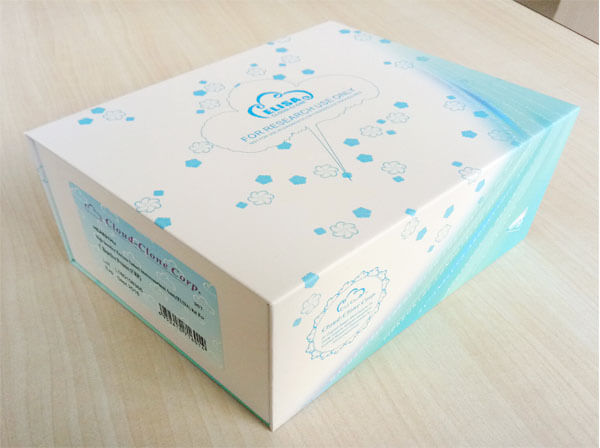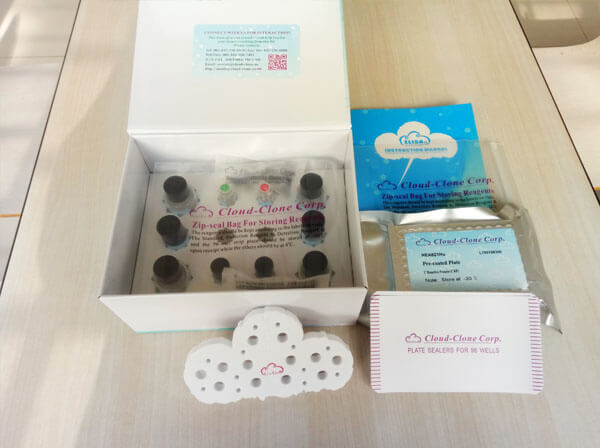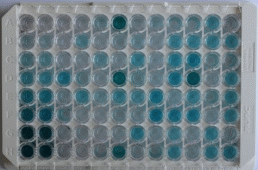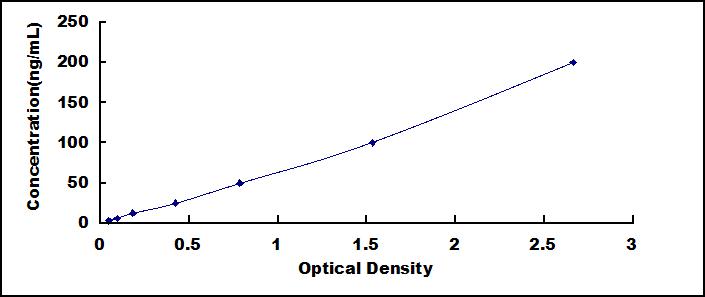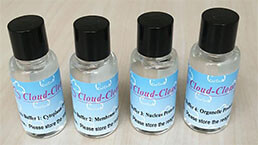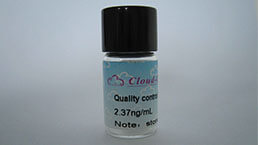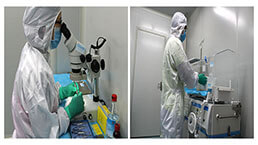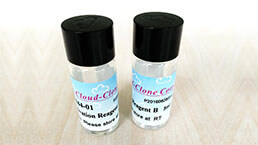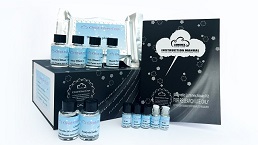ELISA Kit for Anti-Annexin A1 Antibody (Anti-ANXA1) 

ANX-A1; ANX1; LPC1; Lipocortin I; Chromobindin-9; Calpactin II; Phospholipase A2 inhibitory protein
- UOM
- FOB US$ 630.00 US$ 900.00 US$ 4,050.00 US$ 7,650.00 US$ 63,000.00
- Quantity
Overview
Properties
- Product No.AEE787Hu
- Organism SpeciesHomo sapiens (Human) Same name, Different species.
- ApplicationsEnzyme-linked immunosorbent assay for Antibody Detection.
Research use only - DownloadInstruction Manual
- CategoryTumor immunity
Sign into your account
Share a new citation as an author
Upload your experimental result
Review

Contact us
Please fill in the blank.
Recovery
Matrices listed below were spiked with certain level of Anti-Annexin A1 Antibody (Anti-ANXA1) and the recovery rates were calculated by comparing the measured value to the expected amount of Anti-Annexin A1 Antibody (Anti-ANXA1) in samples.
| Matrix | Recovery range (%) | Average(%) |
| serum(n=5) | 95-104 | 99 |
Precision
Intra-assay Precision (Precision within an assay): 3 samples with low, middle and high level Anti-Annexin A1 Antibody (Anti-ANXA1) were tested 20 times on one plate, respectively.
Inter-assay Precision (Precision between assays): 3 samples with low, middle and high level Anti-Annexin A1 Antibody (Anti-ANXA1) were tested on 3 different plates, 8 replicates in each plate.
CV(%) = SD/meanX100
Intra-Assay: CV<10%
Inter-Assay: CV<12%
Linearity
The linearity of the kit was assayed by testing samples spiked with appropriate concentration of Anti-Annexin A1 Antibody (Anti-ANXA1) and their serial dilutions. The results were demonstrated by the percentage of calculated concentration to the expected.
| Sample | 1:2 | 1:4 | 1:8 | 1:16 |
| serum(n=5) | 96-103% | 79-93% | 89-102% | 96-104% |
Stability
The stability of kit is determined by the loss rate of activity. The loss rate of this kit is less than 5% within the expiration date under appropriate storage condition.
To minimize extra influence on the performance, operation procedures and lab conditions, especially room temperature, air humidity, incubator temperature should be strictly controlled. It is also strongly suggested that the whole assay is performed by the same operator from the beginning to the end.
Reagents and materials provided
| Reagents | Quantity | Reagents | Quantity |
| Pre-coated, ready to use 96-well strip plate | 1 | Plate sealer for 96 wells | 4 |
| Standard | 2 | Standard Diluent | 1×20mL |
| Detection Reagent A | 1×120µL | Assay Diluent A | 1×12mL |
| TMB Substrate | 1×9mL | Stop Solution | 1×6mL |
| Wash Buffer (30 × concentrate) | 1×20mL | Instruction manual | 1 |
Assay procedure summary
1. Prepare all reagents, samples and standards;
2. Add 100µL standard or sample to each well. Incubate 1 hours at 37°C;
3. Aspirate and add 100µL prepared Detection Reagent A. Incubate 1 hour at 37°C;
4. Aspirate and wash 5 times;
5. Add 90µL Substrate Solution. Incubate 10-20 minutes at 37°C;
6. Add 50µL Stop Solution. Read at 450nm immediately.

Test principle
The microtiter plate provided in this kit has been pre-coated with an antigen. Standards or samples are then added to the appropriate microtiter plate wells with a Horseradish Peroxidase (HRP)-conjugated secondary antibody. After TMB substrate solution is added, those wells that contain Anti-Annexin A1 Antibody (Anti-ANXA1) will exhibit a change in color. The enzyme-substrate reaction is terminated by the addition of sulphuric acid solution and the color change is measured spectrophotometrically at a wavelength of 450nm ± 10nm. The concentration of Anti-Annexin A1 Antibody (Anti-ANXA1) in the samples is then determined by comparing the O.D. of the samples to the standard curve.
Giveaways
Increment services
Citations
- Dysregulation of Anti-Inflammatory Annexin A1 Expression in Progressive Crohns DiseasePubMed: PMC3794972
- Modulatory Effect of Phytoestrogens and Curcumin on Induction of Annexin 1 in Human Peripheral Blood Mononuclear Cells and their Inhibitory Effect on Secretory Phospholipase A2Ajol: Source
- Host Biomarkers of Invasive Pulmonary Aspergillosis to Monitor Therapeutic ResponseAsm: Source
- Characterization of secretomes from a human blood brain barrier endothelial cells in-vitro model after ischemia by stable isotope labeling with aminoacids in cell culture (SILAC)PubMed: 26718731
- Annexin A1 Is a Key Modulator of Mesenchymal Stromal Cell–Mediated Improvements in Islet FunctionPubMed: 26470781
- Annexin A1 Is Increased in the Plasma of Preeclamptic WomenPubMed: 26398190
- 膜联蛋白A1 和CA19-9 在胆管癌中的表达及其临床意义article:8686
- Protective Aptitude of Annexin A1 in Arterial Neointima Formation in Atherosclerosis-Prone Mice-Brief Report.pubmed:28062503
- Mesenchymal stromal cells improve human islet function through released products and extracellular matrix.pubmed:29101297
- Proresolving protein Annexin A1: The role in type 2 diabetes mellitus and obesityPubmed:29677533
- Annexin A1 is elevated in patients with COPD and affects lung fibroblast functionPubmed:29440885
- Applying host disease status biomarkers to therapeutic response monitoring in invasive aspergillosis patientsPubmed:29370415
- EFFECTS OF MULTICOMPONENT EXERCISE ON PROGRESSION OF BRAIN ATROPHY AND COGNITION IN AMNESTIC MILD COGNITIVE IMPAIRMENT …pdf:3395
- Resolution of inflammation in neuromyelitis optica spectrum disordersPubmed: 30300851
- Effects of annexin A1 on apoptosis and cell cycle arrest in human leukemic cell lines
- Annexin A1 accounts for an anti-inflammatory binding target of sesamin metabolitesPubmed: 32133417
- ANXA1 directs Schwann cells proliferation and migration to accelerate nerve regeneration through the FPR2/AMPK pathwayPubmed: 32908567
- Expression of annexin-A1 in blood and tissue leukocytes of leprosy patients33263684
- Annexin-A1 SUMOylation regulates microglial polarization after cerebral ischemia by modulating IKK¦Á stability via selective autophagy33523920



